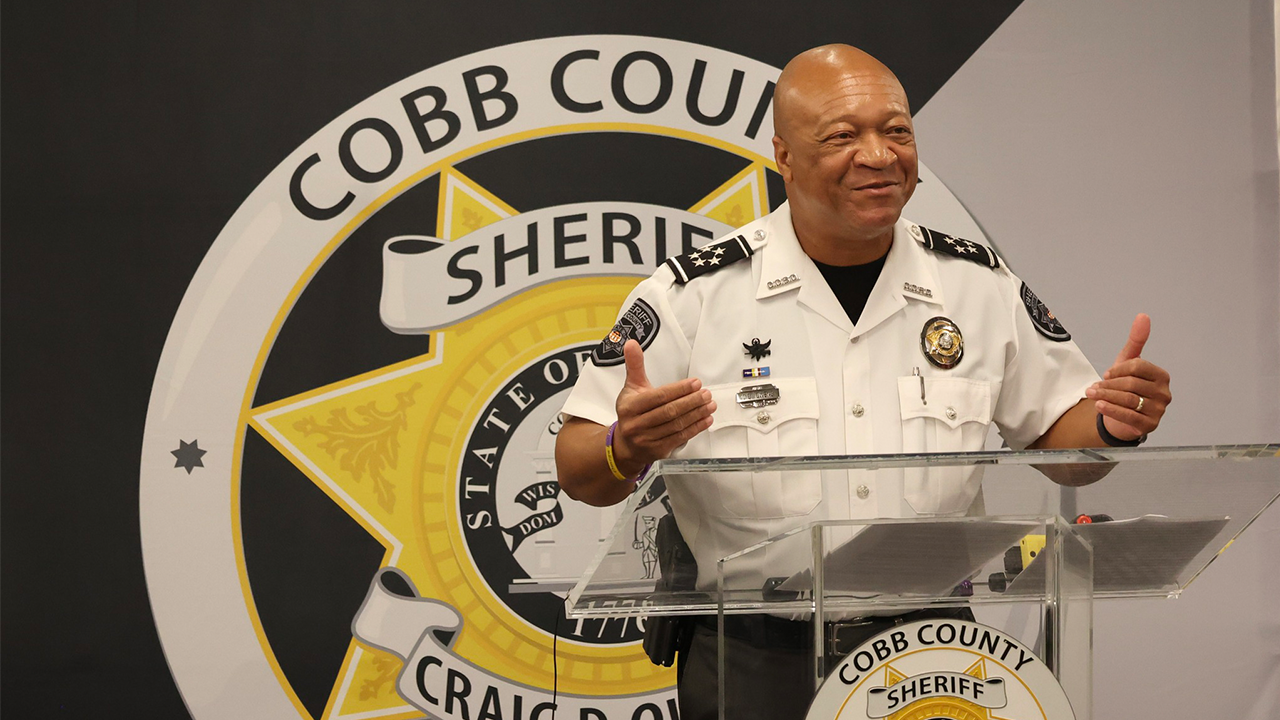Cobb County Sheriff Craig Owens’ recent visit to a Burger King, involving a botched order and a call for deputies, has sparked controversy. The incident, captured on body camera footage, shows Owens, out of uniform, requesting deputies to obtain the owner or manager’s information after a dispute over his order. This seemingly minor incident escalated into a significant public relations issue, raising questions about the use of public resources and the potential abuse of power. The ensuing debate highlights the fine line between a citizen’s rights and a public official’s responsibilities, particularly during an election year. This situation serves as a potent case study illustrating the importance of appropriate conduct for public officials and responsible use of emergency services.
Sheriff’s Actions and the Use of Public Resources
The Incident at Burger King
The incident began with Sheriff Owens’ dissatisfaction over an incorrect Burger King order. Instead of addressing the issue directly with the manager, he called upon three deputies, using lights and sirens, to assist him. This deployment of emergency services, ostensibly for a private matter, raised immediate concerns. The footage shows the deputies engaging with the restaurant staff, ultimately securing the manager’s name and the company’s information. The Sheriff’s actions diverted essential public resources away from potentially more pressing matters, highlighting a misuse of taxpayer-funded services.
The Deputies’ Role and Response
The deputies’ compliance with Sheriff Owens’ request is another aspect worthy of analysis. They didn’t question the necessity of their intervention, despite the seemingly minor nature of the issue. This raises questions about whether deputies were hesitant to contradict a superior, potentially highlighting dynamics within the department and the potential influence of authority on the actions of subordinates. The readily apparent lack of questioning, rather than a straightforward and potentially awkward, but ultimately less controversial handling of the incident, adds to the overall criticisms of the incident. The incident exemplifies the implications of hierarchies and chain of command in situations where resources may be unduly strained.
Public Reaction and Political Implications
Criticism and Public Outrage
The video footage of the incident quickly went viral, attracting significant criticism. Owens’ opponent in the upcoming election, David Cavender, used the video to highlight what he called an “abuse of power.” This political maneuver indicates the heightened sensitivity of the incident in an election year and shows how the sheriff’s actions were immediately and successfully weaponized by his political opponent. Many observers commented on the perceived intimidation of the restaurant staff by the deputies, an effect magnified by their uniforms and use of flashing lights. This perception has prompted accusations of using law enforcement power for personal gain or convenience.
Owens’ Defense and Apology
Sheriff Owens defended his actions, stating that he wasn’t in uniform and didn’t explicitly identify himself as a sheriff. He claimed that his actions were no different from any citizen making a complaint. However, his defense fails to acknowledge the significant difference between a private citizen calling a business to complain about service and utilizing the full force and authority of the sheriff’s department, complete with lights and sirens, to leverage this minor dispute. He later issued an apology, acknowledging the distraction and pledging to do better, acknowledging the concerns caused. This response attempts to mitigate the negative publicity, but it does little to address the substance of the original criticism. Ultimately, his claim that this was no different than a regular citizen filing a complaint fails to fully resonate.
Implications and Future Considerations
Abuse of Power and Misuse of Public Resources
This incident underscores the potential for abuse of power by those in authority positions, illustrating how public office holders are not above the law and should always demonstrate discretion. The Sheriff’s choice to use public resources to solve a personal issue shows that the principles and policies regarding proper usage and allocation of such resources should be reaffirmed.
Importance of Leadership and Accountability
The incident raises important questions regarding leadership within the Cobb County Sheriff’s Office. The deputies’ unquestioning compliance emphasizes the need for clear protocols and a culture of accountability to prevent similar incidents from happening again. Sheriff Owens’ attempt at mitigation through an apology highlights a lack of proactive procedures for conflict resolution.
Transparency and Trust in Law Enforcement
The controversy highlights the importance of transparency in law enforcement. Public trust in law enforcement is easily eroded by events such as this, even with apologies. It’s imperative that law enforcement departments uphold the highest ethical standards.
Takeaway Points:
- The incident highlights the potential for misuse of power and public resources by those in authority.
- The reaction from both critics and Sheriff Owens’ subsequent apology reveal that public trust and confidence can be quickly affected by even seemingly small instances.
- The event serves as a reminder that ethical conduct and responsible resource management are paramount in maintaining public trust in law enforcement.
- Clear protocols and accountable leadership are essential for preventing similar misuse of power incidents.









